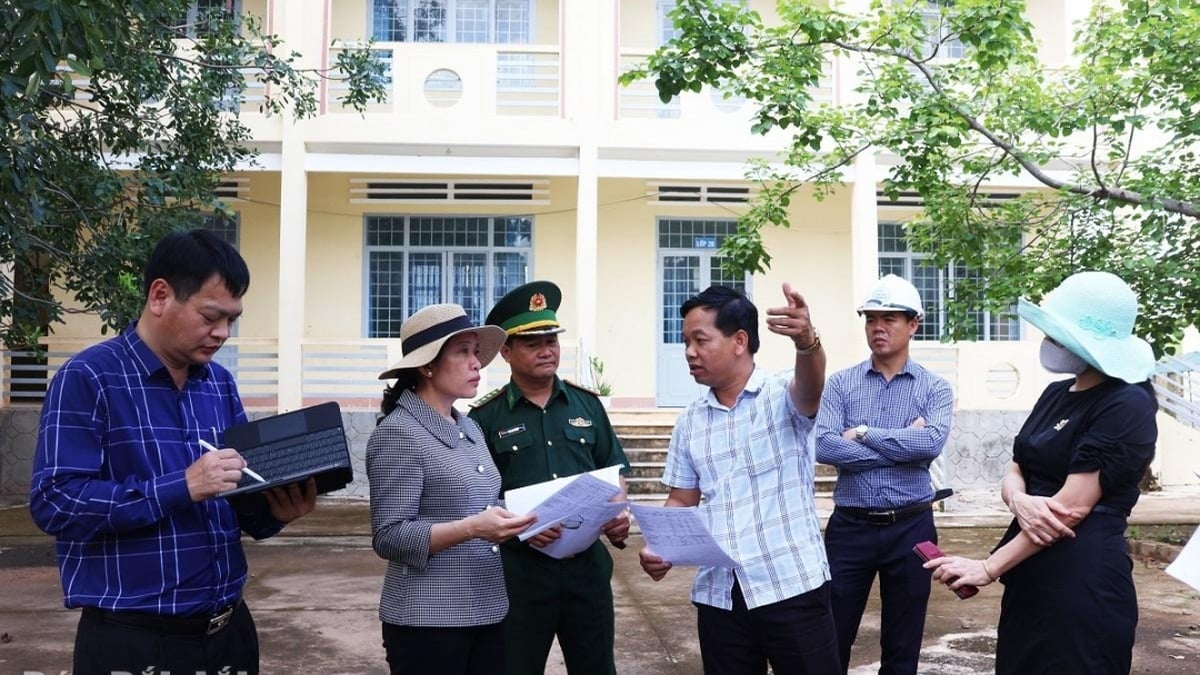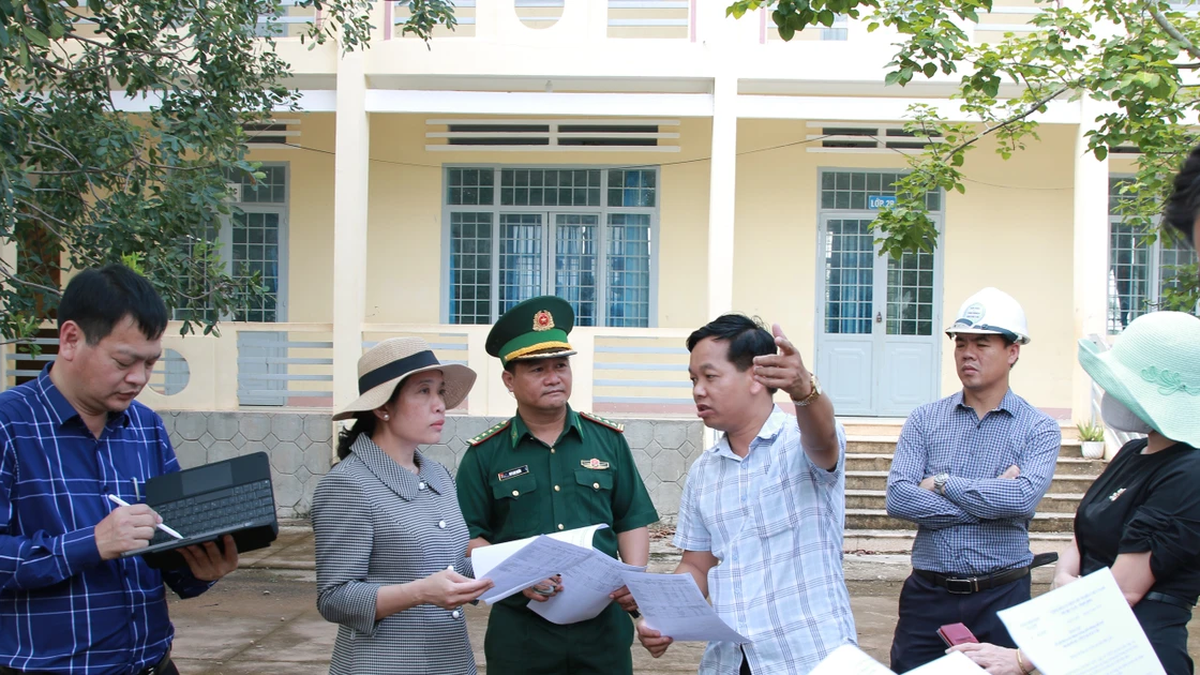Looking back at the development of education over the years, we can be proud of the achievements but also need to be clearly aware of the challenges that lie ahead.
 |
| The year 2024 marks significant progress in the education sector. (Photo: My Hue) |
2024 is a year that marks significant progress in the education sector. With special attention from the Party and the State, along with the continuous efforts of all levels and sectors, our country's education has achieved many remarkable achievements.
On December 31, the Prime Minister issued Decision No. 1705/QD-TTg approving the Education Development Strategy to 2030, with a vision to 2045. It sets the goal that by 2030, Vietnam's education will reach the advanced level of the Asian region and have at least 5 higher education institutions ranked among the 500 best universities in the world ; by 2045, it will reach the advanced level of the world .
It can be said that education is the foundation of sustainable development, the decisive factor in improving the quality of human resources, meeting the requirements of socio-economic development and international integration. Looking back at the process of educational development in Vietnam in recent years, we have achieved many important achievements.
However, to achieve the goal of bringing education to the advanced level of Asia by 2030 and the world by 2045, we need to look back at the achievements, identify the challenges and propose appropriate solutions to develop education in the coming period.
Over the years, Vietnam’s education has made significant progress. The quality of education has been improved through the innovation of curricula, textbooks, and the application of modern teaching methods. Scholarships, vocational training, and international cooperation in education have created learning opportunities for students. Vietnam’s higher education has risen in international rankings, with some schools ranked highly in prestigious world rankings.
According to the announcement of the QS (Quacquarelli Symonds - UK) ranking organization on world university rankings (for 1,751 higher education institutions), Vietnam has 10 institutions participating, an increase of 2 compared to last year, in which Hanoi National University rose to 325th place in the world (up 456 places), ranked 51st in Asia and number 1 in Vietnam.
2024 marks the completion of the first cycle of implementing the 2018 General Education Program at all three levels. This is also the last year to organize the high school graduation exam according to the 2006 Program, before entering the renewal exam from 2025.
In addition, the focus on developing general education and vocational education has helped improve the quality of human resources, meeting the needs of the times. Master's, doctoral and scientific research training programs are gradually improving in quality, contributing to creating a team of young, capable and creative intellectuals.
However, in the current context, Vietnamese education faces many challenges. One of the major problems is the lack of quality and the disparity between regions, especially rural and urban areas. The education system still has many shortcomings, such as the lack of uniformity in training programs, the lack of connection between training and the practical needs of society, as well as problems with facilities and teaching aids.
In addition, the application of information technology and modern teaching methods in schools is still uneven. Some teachers are not fully trained in technology and traditional teaching methods still dominate, making it difficult to access new learning methods.
To realize educational goals, a long-term strategy is needed. One of the key factors is to fundamentally and comprehensively innovate the education system, from reforming the curriculum, teaching methods to training teachers.
First, it is necessary to continue to innovate and improve the quality of teaching programs, especially in general education and vocational education. Programs need to be designed to suit the development trends of science and technology, meeting the needs of the digital economy. Education must create people who are creative, self-study, self-research and problem-solving.
At the same time, developing a team of teachers with high professional qualifications and modern teaching skills is an important factor. Teacher training programs must be strongly innovated to ensure that teachers are competent in using information technology and applying creative and flexible teaching methods. At the same time, it is necessary to strengthen training, fostering and rewarding teachers, creating a good working environment to attract and retain good people.
In addition, information technology and digital transformation must be promoted throughout the entire education system. The development of technology will be the foundation for Vietnamese education to rise up in the digital age, helping to improve the quality of teaching and learning, reduce the gap between regions, and create learning opportunities for everyone. Strengthening international cooperation, learning from countries with developed education systems, and participating in international education organizations will help Vietnam build an advanced and deeply integrated education system.
Looking back at the development of education over the years, we can be proud of the achievements but also need to be aware of the challenges that lie ahead. 2025 will be an important year for the education sector to continue to innovate and develop. With continuous efforts, we believe that the goal of bringing Vietnamese education to an advanced level will soon become a reality, creating a solid foundation to meet the requirements as the country enters a new era.
Source



































































































Comment (0)